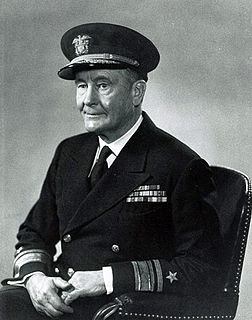A Quote by Thomas Jefferson
Timid men prefer the calm of despotism to the tempestuous sea of liberty.
Related Quotes
As a nation, we began by declaring that 'all men are created equal.' We now practically read it 'all men are created equal, except negroes.' When the Know-Nothings get control, it will read 'all men are created equal, except negroes, and foreigners, and Catholics.' When it comes to this I should prefer emigrating to some country where they make no pretense of loving liberty – to Russia, for instance, where despotism can be taken pure, and without the base alloy of hypocrisy.
What constitutes the bulwark of our own liberty and independence? It is not our frowning battlements, our bristling sea coasts, our army and our navy... Our reliance is in the love of liberty which God has planted in us. Our defense is in the spirit which prizes liberty as the heritage of all men, in all lands everywhere. Destroy this spirit and you have planted the seeds of despotism at your own doors... You have lost the genius of your own independence and become the fit subjects of the first cunning tyrant who rises among you.
It has been said that terror is the principle of despotic government. Does your government therefore resemble despotism? Yes, as the sword that gleams in the hands of the heroes of liberty resembles that with which the henchmen of tyranny are armed ... The government of the revolution is liberty's despotism against tyranny.
But sea power has never led to despotism. The nations that have enjoyed sea power even for a brief period-Athens, Scandinavia, the Netherlands, England, the United States-are those that have preserved freedom for themselves and have given it to others. Of the despotism to which unrestrained military power leads we have plenty of examples from Alexander to Mao.
If there is one fact we really can prove, from the history that we really do know, it is that despotism can be a development, often a late development and very often indeed the end of societies that have been highly democratic. A despotism may almost be defined as a tired democracy. As fatigue falls on a community, the citizens are less inclined for that eternal vigilance which has truly been called the price of liberty; and they prefer to arm only one single sentinel to watch the city while they sleep.
Liberty ... was a two-headed boon. There was first, the liberty of the people as a whole to determine the forms of their own government, to levy their own taxes, and to make their own laws.... There was second, the liberty of the individual man to live his own life, within the limits of decency and decorum, as he pleased -- freedom from the despotism of the majority.
The liberty I mean is social freedom. It is that state of things in which liberty is secured by the equality of restraint. A constitution of things in which the liberty of no one man, and no body of men, and no number of men, can find means to trespass on the liberty of any person, or any description of persons, in the society. This kind of liberty is, indeed, but another name for justice.






























